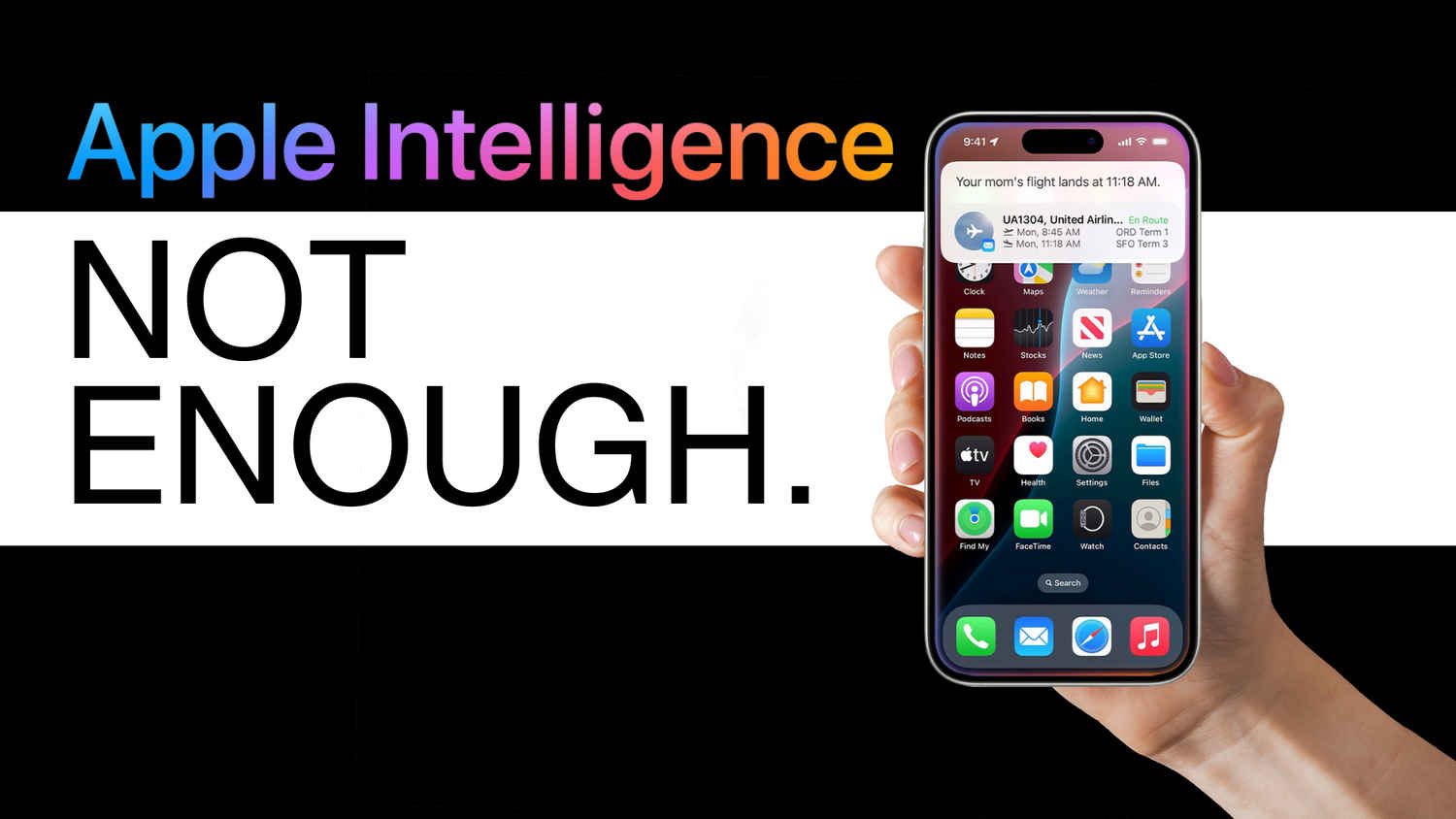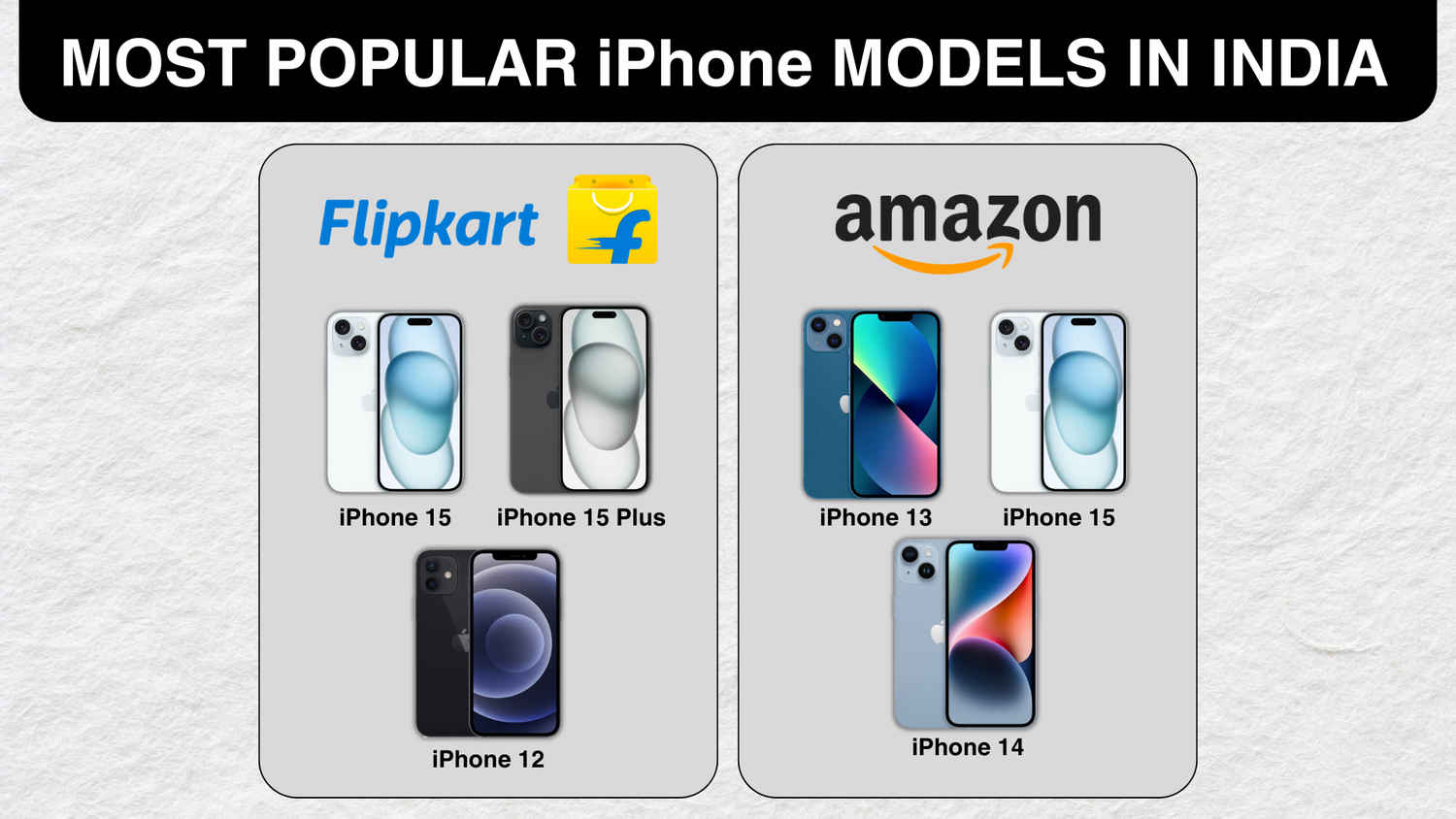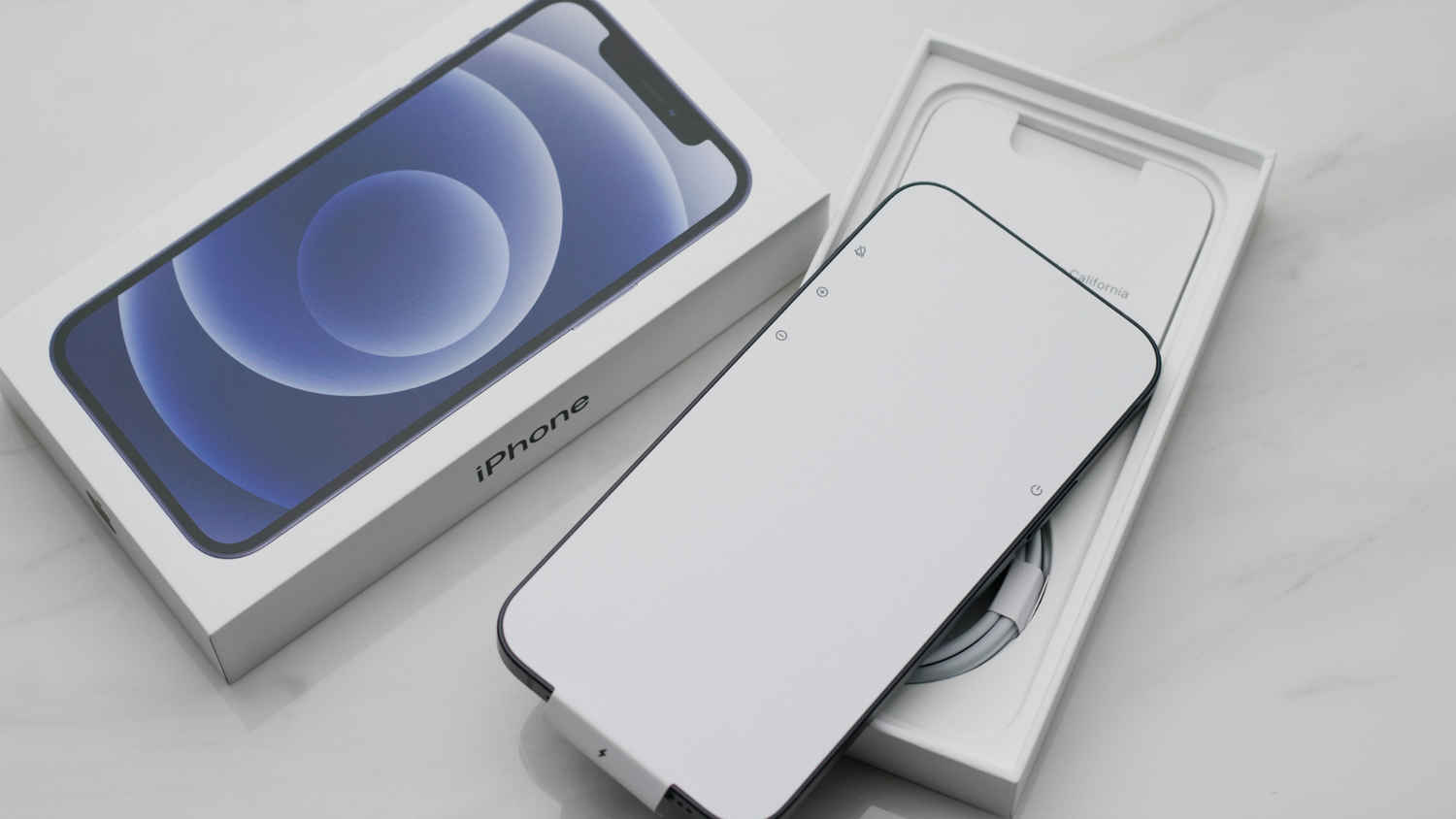Apple Intelligence will not sell iPhones in India: Here’s why

Apple has boarded the AI train finally! They had reserved their seat by announcing Apple Intelligence back in June and releasing some of the features for the users of the iPhone 15 Pro and iPhone 15 Pro Max. However, with the launch of the latest iPhone 16 series of phones, they have expanded their presence to their latest phones, designing them from the ground up to take full advantage of what Apple Intelligence has to offer.
 Survey
SurveyWith the AI train running at full speed now, the expectation for the brand would be to drive the sales of the iPhone 16 series, seated on the back of Apple Intelligence’s inclusion in these phones from the get-go. The announcements, to say the least, were impressive. Apple users who can experience these features will definitely have a ball. However, the limited availability of Apple Intelligence will alienate a lot of Apple users, and in a price-conscious market like India, it is very unlikely that Apple will see the rise in sales numbers that it would expect from regions across the globe. Here’s why –
Artificially intelligent history – A story of shooting in the foot
Back in June of this year, when Apple severed its platter of AI features on its iPhones, it cleverly dubbed it Apple Intelligence, which, if you abbreviate it, is AI. Well played! The features that were announced were impressive, and whatever time I had with them, I found their implementation to be robust, typically Apple. At the time of the announcement, Apple Intelligence grabbed a lot of headlines. After all, the company with arguably the most hyped smartphone launches every year was finally taking the big leap into the world of AI. And it was spectacular.

However, as the age-old saying goes, every side has two sides. While the fanboys and a majority of the folks reporting on it revelled in the perfectionist limelight of Apple, the critics were also having a field day. Not because they got a chance to nit-pick on Apple, but because Apple had limited the availability of Apple Intelligence on just the iPhone 15 Pro and 15 Pro Max. Their argument? Well, they were mostly tight-lipped about it, but the general consensus was that they deemed older iPhones, or the base iPhone 15 and 15 Plus, to not be capable enough to give the end user the optimal experience with Apple Intelligence.
The expectation by the optimists was, later in the year, when they announce the iPhone 16 line of phones, which would obviously be designed around Apple Intelligence, they would extend the support for Apple Intelligence to older iPhones, at least going back to the iPhone 12 series, because they are powerful enough. At least on the spec sheets. Cut to September 9, when Apple held their Glowtime event, the owners of older iPhones, well, to put it better, anyone who was not looking to buy the iPhone 16 series or owned the 15 Pro or the Pro Max lay ignored in the shadow of the glow of the Apple Intelligence logo. This is just the tip of the iceberg. We will dive deep later. Let’s look at India’s situation right now.

Also Read: A timeline of AI features on Apple iPhone: The past and the present
AI (Apple Intelligence) in our backyard
At this point, we have established that Apple Intelligence will remain the cordoned-off section in the Apple Ecosystem that the few elites owning the iPhone 16 series or the iPhone 15 Pro and Pro Max would be able to access. Now, when you come to India, where Apple would expect increased sales of iPhones like the rest of the world, on the back of their Apple Intelligence announcement, well, that ain’t happening.
There’s no denying that Apple’s popularity in the smartphone market in India has grown over the years. A Bloomberg report on the matter suggested that “India revenue jumped about 33% in the 12 months through March from $6 billion a year earlier”. And, as per the data shared by Shangliao Sun via Statista, between 2021 and 2024, the iPhone’s market share in India has almost doubled.

However, the sales are mainly driven by older models which do not support Apple Intelligence. A simple three-step research will show that. The best-selling iPhones on two of the biggest e-commerce platforms in India, Flipkart and Amazon, at the time of writing this article, are not the models that support Apple Intelligence. On Flipkart, the top three most popular iPhone models are –
- Apple iPhone 15
- Apple iPhone 15 Plus
- Apple iPhone 12
The iPhone 15 Pro makes an appearance only as the 14th most popular iPhone on the platform. Let’s look at Amazon’s data. The best-selling iPhone models on Amazon are –
- Apple iPhone 13
- Apple iPhone 15
- Apple iPhone 14
Even if you look at the listings for the most popular iPhone listings in a refurbished marketplace like Cashify, the numbers paint a rather grim picture. There, the most popular iPhone models are –
- Apple iPhone XS Max
- Apple iPhone XR
- Apple iPhone 13
- Apple iPhone 11
- Apple iPhone 12
I don’t think I need to add anything more here. The numbers say it all. The iPhone sales in India are on the rise. However, it is not the phones that Apple included Apple Intelligence in.
What could they do?
Well, the answer is simple. Expand the presence of Apple Intelligence to older iPhones. As I mentioned earlier, the older iPhones, at least going back to the 12 series, are capable enough to do a chunk of the localised processing for Apple Intelligence tasks. And, whatever bits Apple deemed would not be processed efficiently enough on the device natively, they could easily off-load it to the cloud. They are already doing that with the existing implementation of Apple Intelligence on the newer iPhones.
If you were to walk up to Tim Cook and ask about it, there’d be one of two answers –
“Buy a new iPhone” OR “They aren’t simply powerful enough, and we respect your privacy”.
Well, Mr Cook, you collaborated with OpenAI, which has been receiving negative attention around data privacy concerns from the get-go anyway. We will never know what is in the fine print of your deal with OpenAI. So, the debate around data privacy is up in the air. However, if you are concerned, implement the same encryption system for information exchange for the newer iPhones with Apple Intelligence when you are offloading some tasks to the cloud, which on the newer iPhones would have run natively.

Team Green’s stronghold
While Apple is busy basking in the reflected glory of their latest iPhones and their ability to run Apple Intelligence tasks natively, we have the Android workhorses toiling away to make AI on smartphones more and more accessible. Of the phones that we have tested during our AI-Q testing, which evaluates the AI capabilities of phones, the cheapest phone is the iQOO Z9X, which comes in at ₹12,999. I agree the score wasn’t the best for the phone, but it does give the consumer a taste of what AI would look like on a smartphone.
When it comes to the innovation race, Apple and Android devices are neck to neck. Apple showed up late to the party, but made spectacular announcements with Apple Intelligence, hogging the AI moniker as well. However, as days go by, AI on Android phones is becoming more and more accessible, and Android smartphone manufacturers have a tight grip on the Indian market. The folks willing to try it out would not want to empty their bank account and go buy the latest iPhone or last year’s Pro models, which still are quite expensive.
What will happen?
Apple will not be able to increase iPhone sales in India just by showcasing the allure of Apple Intelligence.
Apple Intelligence, in its current state, is a beast that will need steroids of wider implementation to get it up and running. In its current state, Apple Intelligence needs more pull to draw sales of the new iPhones or propel that of the last-gen Pro models. They will need to open the floodgates and bring Apple Intelligence to older iPhones to ensure that the existing users get a taste of it, and then they can lure them into buying new iPhones by showcasing some exclusive features which they include in their latest releases.
Satvik Pandey
Satvik Pandey, is a self-professed Steve Jobs (not Apple) fanboy, a science & tech writer, and a sports addict. At Digit, he works as a Deputy Features Editor, and manages the daily functioning of the magazine. He also reviews audio-products (speakers, headphones, soundbars, etc.), smartwatches, projectors, and everything else that he can get his hands on. A media and communications graduate, Satvik is also an avid shutterbug, and when he's not working or gaming, he can be found fiddling with any camera he can get his hands on and helping produce videos – which means he spends an awful amount of time in our studio. His game of choice is Counter-Strike, and he's still attempting to turn pro. He can talk your ear off about the game, and we'd strongly advise you to steer clear of the topic unless you too are a CS junkie. View Full Profile